The Leave no Trace principles were made out of necessity. Millions of campers and hikers visit the great outdoors every year, and leave millions upon millions of footprints in nature. Therein lies the problem; trillions of footprints also damage the great outdoors if we’re careless or reckless. That’s why every hiker, camper or any nature lover should honor the 7 principles.
In short, Leave No Trace is easy to understand. Leave no trace, like you were a ghost that’s going on a hike and enjoying the sights, the solitude and the beauty of nature. Don’t leave any trash behind, bother any animals, annoy your fellow hikers or get in trouble that requires having Mountain Rescue or some other authority come evacuate you. Live and let life, and minimize your footprint on the trail as much as you can.
1. Plan Ahead & Prepare
The first principle tells us to prepare before we go hiking. It’s pretty self-explanatory, always have the right gear, the right load and the right mindset before going on a hike. You should ask your fellow experienced hikers and campers what you need to bring along, read blogs and forums and gather information about all the latest news on your trail.
Unfortunately, campers and hikers that overpack will often throw their excess gear away. Some campers will discard their extra gear on the trail, harming wildlife and nature. You can find chests full of unnecessary camp supplies at most camp grounds.
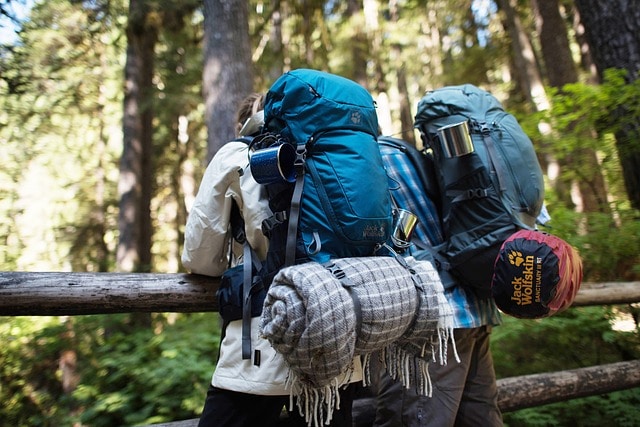
Carefully pack your backpack and know what you need by using a gear checklist; packing more than you should carry is a surefire way to have a hard time hiking.
On the other side of the spectrum, please pack enough gear for the current hike; hikers and campers are happy to help you out, once. If you didn’t pack enough food, clothes or shelter, it’s inconsiderate to mooch off the other campers and you should make the trip to a nearby town.
You should also be prepared to brave the elements, and know when not to hike. If an area is known for flash floods, you should avoid that area.
2. Travel and Camp on Durable Surfaces
You should travel through an area like a ghost. Do not damage anything along the way, do not go out of your way to push a rotten tree down or trample plant life. Do not feed the wildlife, or otherwise agitate it. Remember, you should be a lone wandering ghost through the trail.
If possible, always use the trail. Some hikes involve going off-trail, and you should still try to step on as little grass and other vegetation as you can. Most hikes have pre-made trails that are easy to see and to follow.
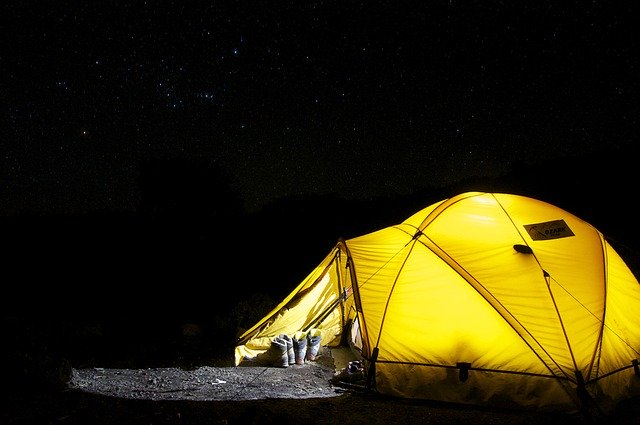
You should camp on a durable surface, or in a popular campsite as to minimize your effect on nature and soil erosion. You shouldn’t camp wherever you feel like camping; you might harm the wildlife. Camp about 200 feet away from water because wildlife won’t have to avoid you to get to the water.
3. Dispose of Waste Properly
Improper waste disposal is a huge problem in the wild. There are no garbage men or landfills that will take your trash for you, and misplacing your garbage ruins the pristine nature for the next batch of campers. Carry an extra trash bag and collect waste along the hike, if you can. It’s a noble act that keeps nature pristine.
Depending on the location, you should dig cat holes to bury human waste. You can generally use biodegradable toilet paper. Some locations force you to pack up the waste and carry it out. Read more about it here.
Food waste is a big problem because it attracts wildlife. Carefully pack up your food waste and dispose of it back home.
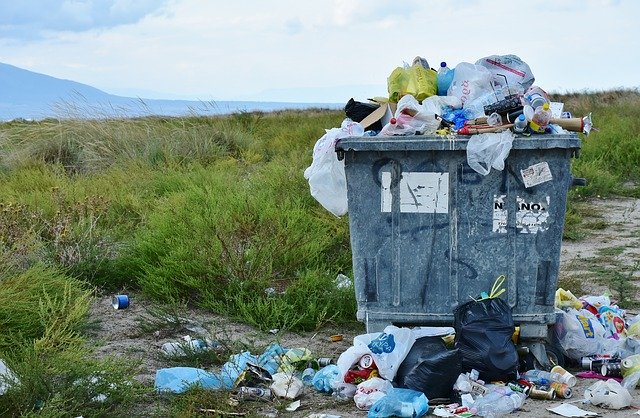
4. Leave What You Find
This one is pretty self-explanatory; don’t take anything to bring back home, don’t damage anything.
We all love souvenirs, but nature’s souvenirs should stay where they are. Take pictures, they’ll surely last longer in the Cloud. Everything has a place in nature, a rock, a pinecone (Conifer cone) or a stump is something’s home. Quick warning, centipedes and other bugs live in pinecones.
A bunch of leaves is something’s lunch, and a bunch of twigs you wanted to use in a campfire were material for a bird’s nest. Don’t touch, but do take photos.
Secondary, please do no harm. It’s romantic to carve your initials in a tree, but not here. There are millions of hikers, and if every one of them carved an initial in a nearby tree, you wouldn’t have any trees left near the campsite. If everyone picked a flower, there would be no flowers left. Photograph, don’t touch.
5. Minimize Campfire Impacts
Know the rules of your hiking ground. Some are okay with you building a campfire at a designated campsite, others are not. Some are okay with you using a small propane cooking stove, others don’t allow it. Some camping sites ban fire completely, and you’ll be eating no-cook meals there.
Campfires are “expensive”. You need to gather wood and tend to the fire to keep it going, and a campfire is a very inefficient way to boil water. They’re a good tradition, and staring at a fire has a deeply primal calming effect, but we should respect nature and minimize our trace.
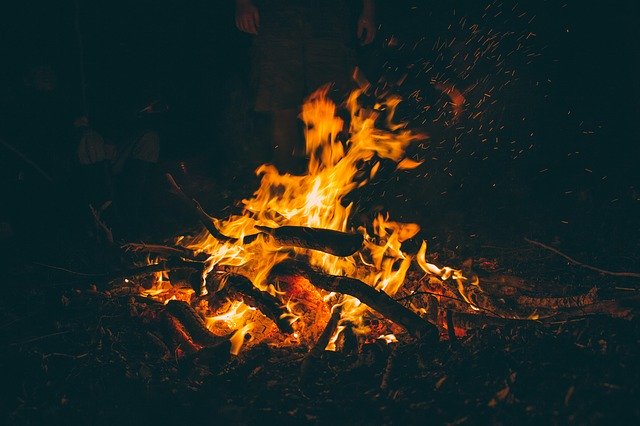
If you do want to start a campfire, please consult the authorities and buy local wood; bringing wood from your home state or city introduces a lot of “unwanted passengers” to your camping ground. You could bring viruses, bacteria or parasites that will be a huge problem in your camping ground, and you won’t even know it.
It’s much quicker and safer to just use a backpacking stove, and use quality sleeping bags and a quality tent that will last for years for warmth.
6. Respect Wildlife
Wild animals are nothing like domestic animals. They’re scared of humans and don’t really want to socialize. Animals that like humans have spent several generations in the company of humans (pidgeons, dogs, cows, cats, deer from Nara Park) aren’t afraid of us and are friendly.
Wild animals are scared and could hurt us out of fear (most bear attacks are due to the bear being surprised or afraid we’ll hurt her cubs). Do not approach wildlife, observe it from a distance. We know that zoom makes photos look bad, but please use it and stay away from wild life.
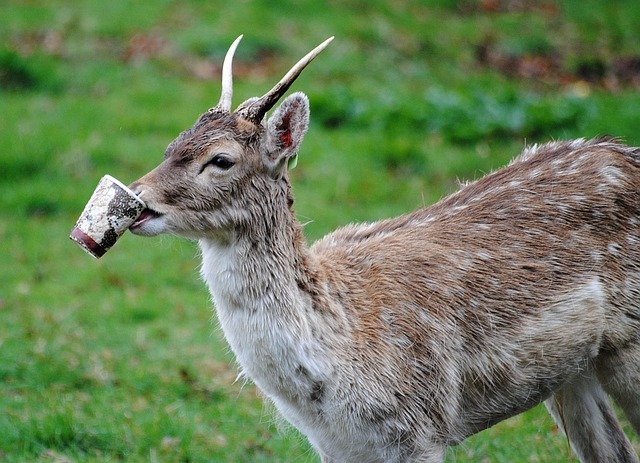
Don’t camp near water; animals need to drink water and you camping there doesn’t allow that. Most animals will “respect” your territory and go thirsty for a while, and some might choose to “disrespect” you and come too close anyway. They’re scared and on edge, and if you scare them they might attack out of fear.
Be mindful of your waste, and your garbage and food waste, as animals will be drawn to it. Wildlife is curious, and will enter your territory to scavenge for food. This close proximity could lead to you getting attacked.
Respect the wildlife, and try to interact with them as little as possible. Use bear canisters for your food and food waste to stay safe.
7. Be Considerate of Others
Like any other human interaction, the Golden Rule applies. “Do onto others as you would have them do onto you” (Matthew 7:12), is a nice way of putting it. This is a very simple rule that tells you how to behave among other people.
Now, there’s one caveat, and that some things that don’t bother you bother other people a lot, and you shouldn’t bother them. Maybe you’re a dog-lover and you relish the opportunity to meet a dog owner in the trail and pet their dog, and you don’t mind the barks and the excitement. Maybe you have a portable bluetooth speaker and you play loud music for you and your friends, and you don’t mind the music that other play with their friends. Maybe you don’t mind the loud buzzing a camera drone makes.
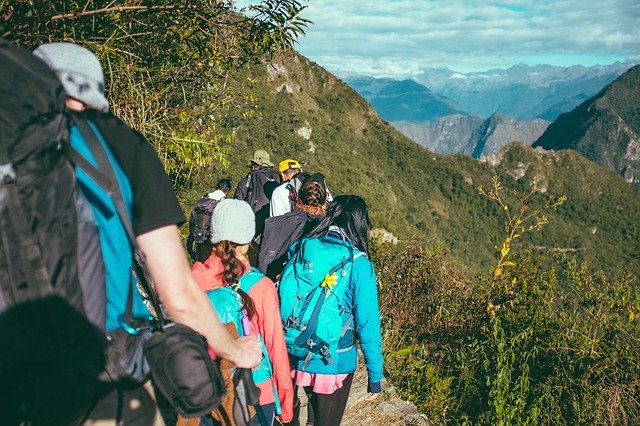
But some people do mind, and they’re very annoyed by it. Try to be polite and considerate, as we’re all in this together, and enjoy nature and it’s natural feelings of solitude and privacy. Try to keep to yourself when you’re among other hikers, and be courteous. Say hello and don’t try too hard to make friends, many people are solo hikers that enjoy the silence. It’s about loving your fellow hiker and giving an effort to make their hike as pleasurable as it can be.
Yield to bikes and horses on the trail because they’re bigger and take more space. Use natural colored gear if you’re going to a popular camping spot.
Conclusion
The Seven Principles of Leave no Trace were made to keep nature natural. Spread the word, and kindly inform hikers that go astray. Be the kind ghost on the trail, and leave the great outdoors great for your grandchildren too.
